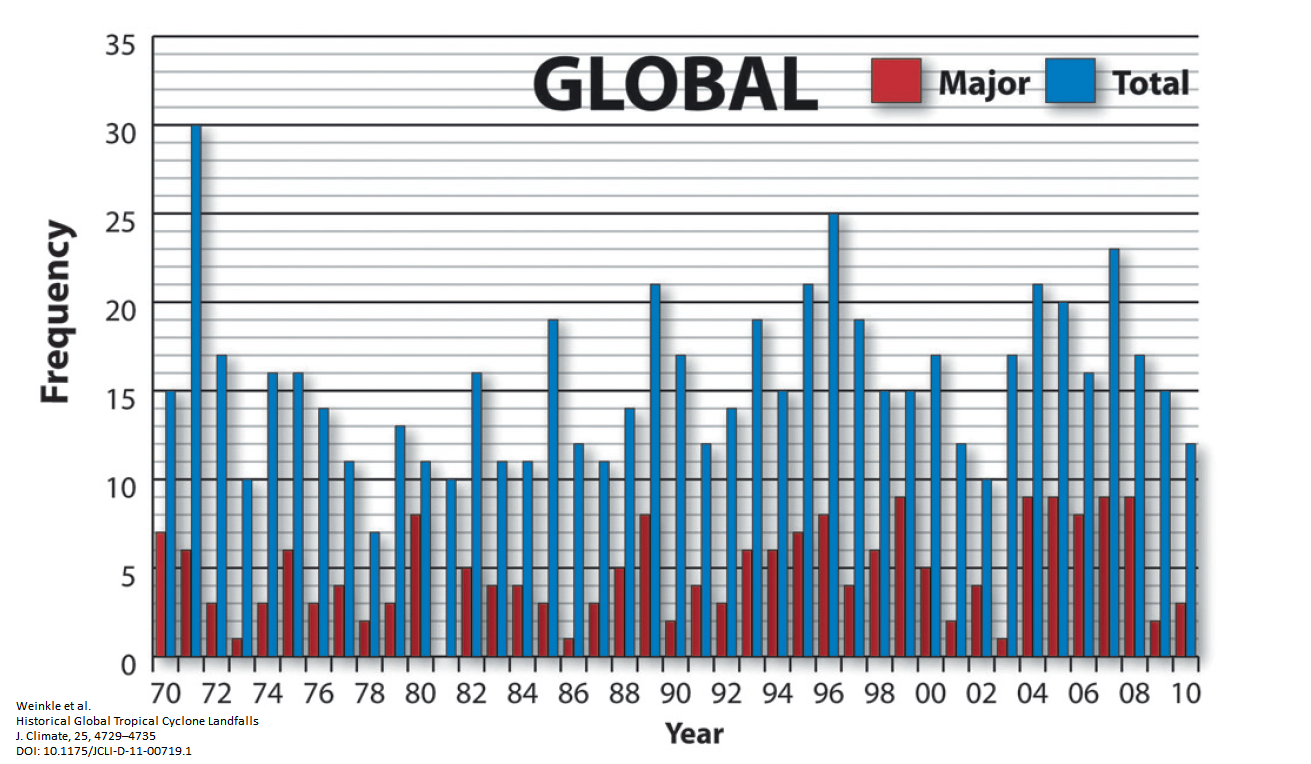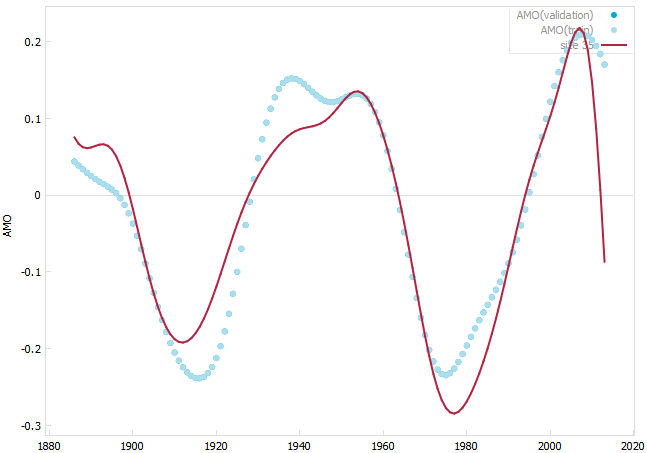Tropical cyclones are violent weather systems that originate near the equator and move in the North-West direction.

Tropical cyclones with landfall at hurricane intensity in the whole World.
Source: Weinkle et al. “Historical Global Tropical Cyclone Landfalls”, J. Climate, 25, 4729–4735
A longer data history is available for Atlantic cyclones:

Atlantic tropical cyclone counts
Source: Landsea et al., “Impact of Duration Thresholds on Atlantic Tropical Cyclone Counts”,
Journal of Climate, 23(10), 2508-2519.
While the count of storms is important, their released energy indicates their damaging potential.

Yearly accumulated energy of Atlantic tropical cyclones.
Source: Landsea et al. op. cit.
|
|
A correlation analysis between Accumulated Cyclone Energy and Atlantic Multidecadal Oscillations indicates that a similar time cycles exists in both datasets.
The catastrophic impacts of recent hurricanes and typhoons are likely to be linked with increased population and more developed area rather than because of their frequencies or intensities.
Tornadoes
In the USA, the frequency and the violence of tornadoes has been recorded since 1954.

Annual counts of tornadoes in the USA
Source: NOAA National Climatic Data Center (NCDC)
With such data it is not possible to get a significant trend in one or in the other direction.



